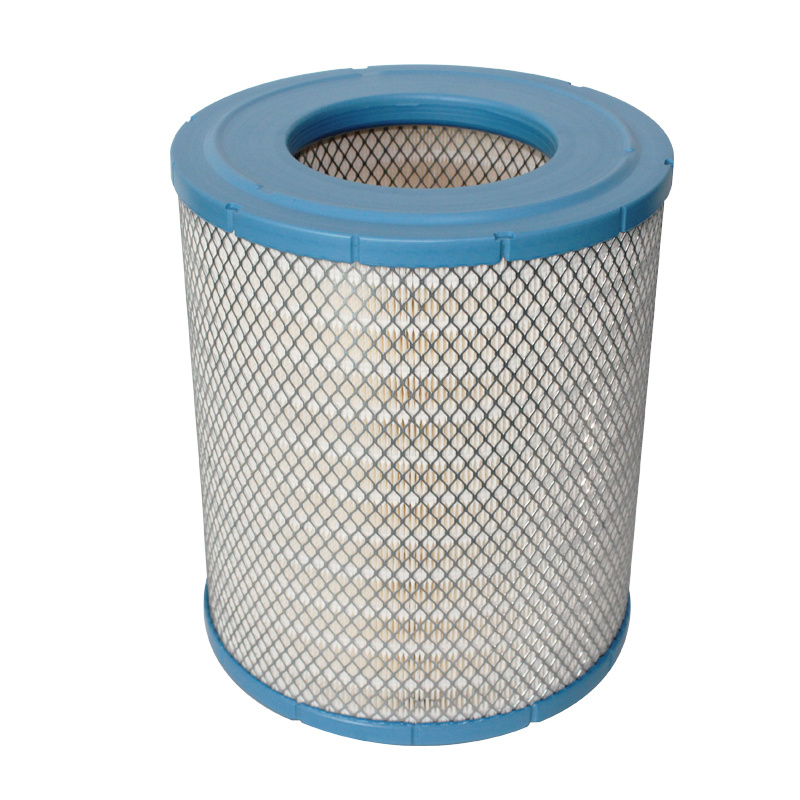Common Myths About Car Air Conditioning Filters Debunked: What Every Car Owner Should Know
Jun 26,2025
Common Myths About Car Air Conditioning Filters Debunked Table of Contents 1. Introduction 2. Understanding Car Air Conditioning Filters 3. Myth #1: Air Conditioning Filters are Optional 4. Myth #2: Only New Cars Need Filter Replacement 5. Myth #3: All Filters are Created Equal 6. Myth #4: You Can Clean Your Filter Instead of Replacing It 7. Myth #5: Air Conditioning F

Common Myths About Car Air Conditioning Filters Debunked
Table of Contents
- 1. Introduction
- 2. Understanding Car Air Conditioning Filters
- 3. Myth #1: Air Conditioning Filters are Optional
- 4. Myth #2: Only New Cars Need Filter Replacement
- 5. Myth #3: All Filters are Created Equal
- 6. Myth #4: You Can Clean Your Filter Instead of Replacing It
- 7. Myth #5: Air Conditioning Filters Only Affect Air Quality
- 8. Myth #6: Replacing the Filter is a DIY Job for Everyone
- 9. Maintaining Your Air Conditioning System
- 10. Conclusion
- 11. Frequently Asked Questions
1. Introduction
In the realm of car maintenance, the air conditioning (AC) filter often gets overlooked. Many car owners are unaware of the vital role that the AC filter plays in ensuring a comfortable driving experience and keeping the vehicle’s climate control system functioning efficiently. Unfortunately, misconceptions about air conditioning filters are rampant, leading to neglect and potential problems. In this article, we will debunk some of the most common myths surrounding car air conditioning filters, providing you with the knowledge you need to keep your vehicle in optimal condition.
2. Understanding Car Air Conditioning Filters
Car air conditioning filters, commonly referred to as cabin air filters, are responsible for trapping dust, pollen, and other airborne particles from entering the vehicle's interior. By maintaining clean air quality, these filters play a crucial role in promoting a healthy environment for both drivers and passengers. Moreover, a properly functioning AC filter contributes to the efficiency of the vehicle's air conditioning system, ensuring that it operates effectively and reliably.
3. Myth #1: Air Conditioning Filters are Optional
One of the most pervasive myths is that air conditioning filters are optional components of a vehicle. In reality, these filters are essential for maintaining air quality inside the car. Without a functioning filter, dust and allergens can circulate within the cabin, potentially aggravating health issues for sensitive individuals. Furthermore, neglecting the AC filter can lead to increased strain on the air conditioning system, causing it to work harder and ultimately depleting fuel efficiency.
4. Myth #2: Only New Cars Need Filter Replacement
Another common misconception is that only new cars require air conditioning filter replacement. This myth overlooks the fact that older vehicles can also suffer from clogged or dirty filters. All cars, regardless of age, require regular maintenance, including filter replacement, to ensure optimal performance. Vehicle manufacturers often recommend changing the AC filter every 12,000 to 15,000 miles, but this can vary based on driving conditions and individual usage.
5. Myth #3: All Filters are Created Equal
Many car owners mistakenly believe that any air conditioning filter will suffice for their vehicle. However, filters can vary significantly in quality and effectiveness. Premium filters often feature advanced filtration technology, trapping smaller particles and providing better air quality. It is essential to select a filter that meets or exceeds the manufacturer’s specifications for your specific vehicle model to ensure optimal performance.
6. Myth #4: You Can Clean Your Filter Instead of Replacing It
Some individuals believe that cleaning the air conditioning filter is an adequate alternative to replacement. While certain filters may be washable, most standard filters are designed for one-time use. Attempting to clean a disposable filter can cause damage and reduce its effectiveness. Regular replacement is crucial for maintaining optimal air quality and ensuring the longevity of the air conditioning system.
7. Myth #5: Air Conditioning Filters Only Affect Air Quality
The myth that air conditioning filters only impact air quality fails to recognize their broader implications for the vehicle’s performance. A clogged or dirty filter can lead to reduced airflow, forcing the air conditioning system to work harder. This can result in increased wear and tear on the AC components, leading to costly repairs down the line. Moreover, a malfunctioning filter can negatively affect fuel efficiency, contributing to higher operating costs.
8. Myth #6: Replacing the Filter is a DIY Job for Everyone
While replacing an air conditioning filter is generally a straightforward task, it may not be suitable for all car owners. Some vehicles have filters located in hard-to-reach areas, requiring specific tools or expertise to access. Attempting to replace the filter without proper knowledge can lead to damage to sensitive components or improper installation. If unsure, it’s best to consult a professional mechanic to ensure the job is done correctly.
9. Maintaining Your Air Conditioning System
Regular maintenance of your air conditioning system is essential for longevity and efficiency. Here are some best practices for maintaining your AC system:
9.1 Regular Inspections
Schedule routine inspections of your vehicle's air conditioning system, especially before the warmer months. A professional technician can check for leaks, test the system's performance, and replace filters as needed.
9.2 Change the AC Filter
As mentioned earlier, changing the air conditioning filter every 12,000 to 15,000 miles is generally recommended. Consult your vehicle’s owner manual for specific guidelines on filter replacement intervals.
9.3 Monitor System Performance
Pay attention to how your air conditioning system performs. If you notice a decrease in airflow or strange noises, it may be time for a professional evaluation.
9.4 Use the AC Regularly
Using your AC system regularly helps keep the components lubricated and functioning efficiently. This practice can also prevent potential issues, such as the buildup of mildew and moisture.
9.5 Keep the Exterior Clean
Regularly cleaning the exterior of your vehicle, including the grille and air intake areas, can prevent debris from entering the air conditioning system and ensure proper airflow.
10. Conclusion
Understanding the truth behind common myths about car air conditioning filters is vital for every vehicle owner. By debunking these misconceptions, we can promote better maintenance practices that enhance air quality and system performance. Regularly replacing your AC filter, selecting quality components, and scheduling routine inspections will not only improve your driving experience but also prolong the life of your vehicle’s air conditioning system. Don’t let myths dictate your car maintenance; take charge and ensure your vehicle operates at its best.
11. Frequently Asked Questions
What is the purpose of an air conditioning filter in a car?
The air conditioning filter’s primary purpose is to trap dust, pollen, and other particulates, ensuring clean air circulates within the vehicle's cabin.
How often should I replace my car's air conditioning filter?
It is generally recommended to replace the AC filter every 12,000 to 15,000 miles, but you should refer to your vehicle’s owner manual for specific guidelines.
Can I use a generic air conditioning filter?
While generic filters may fit, they may not provide the same quality of filtration as OEM (original equipment manufacturer) filters. It's best to choose filters that meet the manufacturer’s specifications for optimal performance.
What are the signs that my air conditioning filter needs to be replaced?
Signs include decreased airflow, musty odors in the cabin, or increased noise from the AC system. If you notice any of these symptoms, it’s time to check the filter.
Can I clean my air conditioning filter instead of replacing it?
Most standard filters are designed for one-time use, and attempting to clean them can reduce their effectiveness. Regular replacement is the best practice for maintaining air quality and system performance.
TAG:
PREVIOUS:
Contact Us







